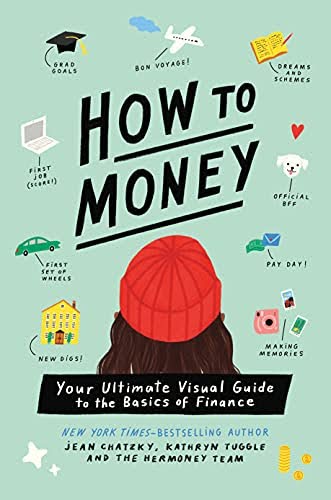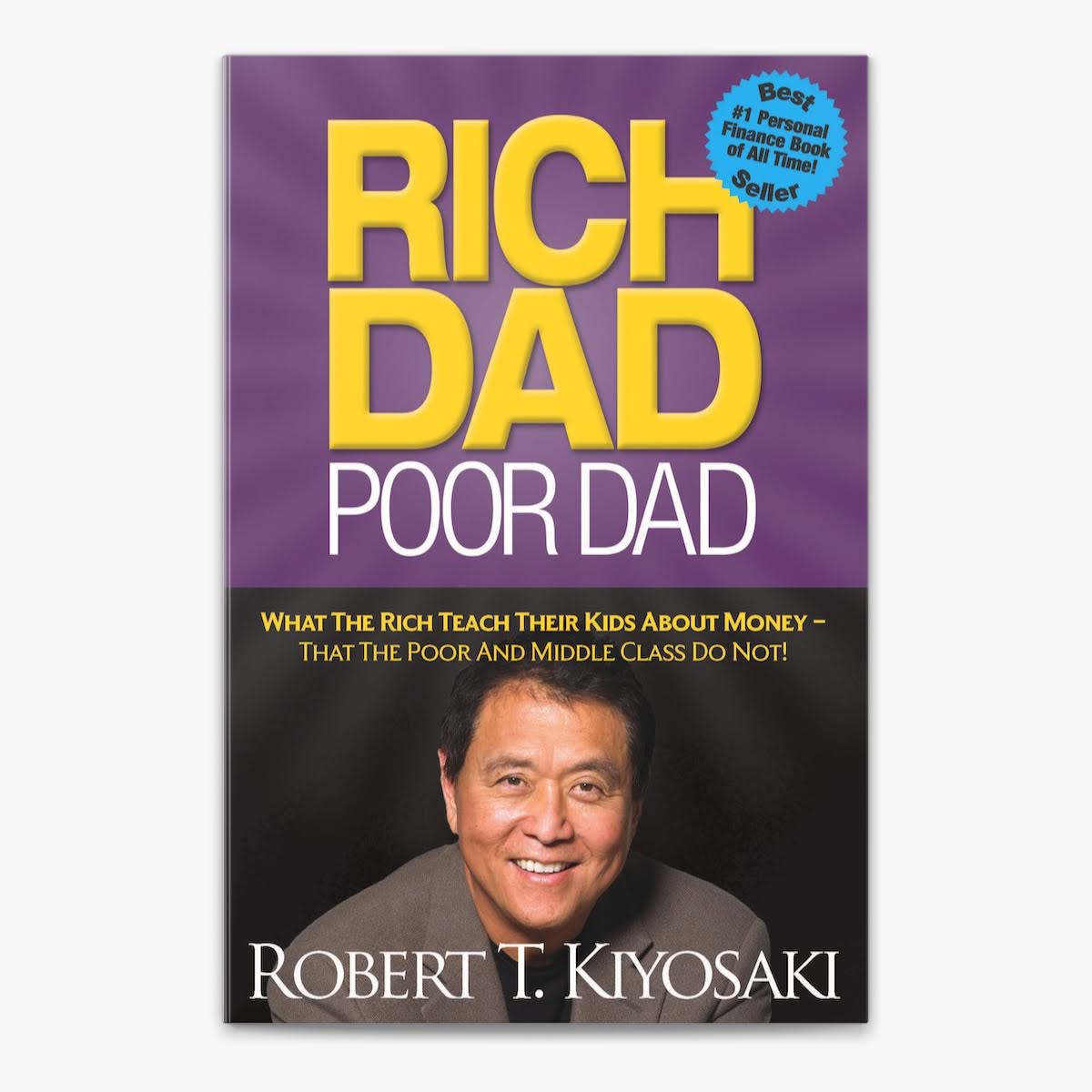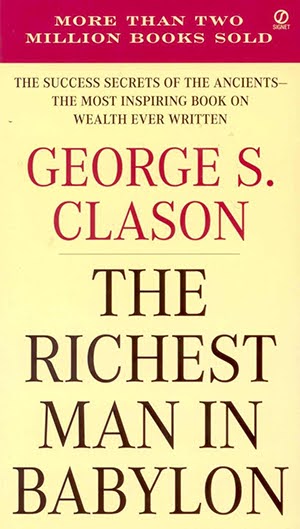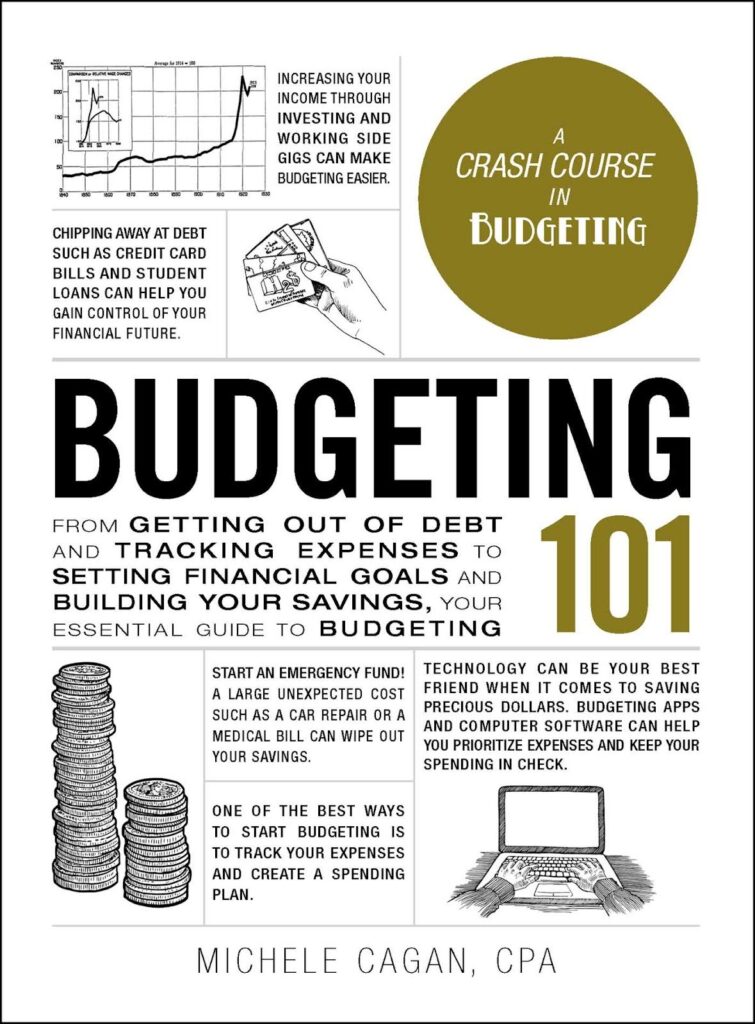Some people talk about budgeting, investing and saving as if they were simple concepts for all, but the truth is, understanding money is no easy feat. What even is interest? The only interest I have is in watching cat videos.
Even though learning how to manage your money can be overwhelming to understand at first, it is a fundamental skill that can impact your life in the long term. Making informed financial decisions is key to achieving financial stability. But don’t panic just yet! The good news is that, like any other skill, financial literacy can be learned.
In this article, we’ll explore seven financial literacy books to help you take control of your finances.
If you’re a beginner, these books can help you develop practical strategies for creating a budget, saving money and understanding the basics of investments. We’ll take it step by step, so don’t fret! And if you’re a bit more seasoned in the art of finances, we also have a few books that will give you a fresh perspective on money management.
Whether you have a little or a lot, understanding money is vital in this day and age, so let’s dive in.

Top Financial Literacy Books
Through practical advice and clear explanations, the authors of these books will empower you to take control of your own money and develop positive financial habits.
If you become hooked on this topic, we have an even more extensive list of books for in-depth knowledge.
1. Financial Literacy for Teens
By Chad Foster

With college just around the corner, your teenage years are an ideal time to start learning how to manage your finances, and Chad Foster knows it. This entrepreneur realized young people in America were not fully prepared for their entry into adult life, so he channeled all he learned throughout his career into Financial Literacy for Teens, a book that has been used in thousands of high school classrooms in America.
Financial Literacy for Teens explains how to save, spend, invest and give away money in an engaging writing style, which is very useful when dealing with a pretty dull topic like finances and especially convenient when you’re working with an already hard-to-engage group as teenagers.
This book emphasizes the importance of nurturing both knowledge and skill when it comes to finances. The trick is to present new concepts in a dynamic way that inspires children to take action, and Financial Literacy for Teens does it well.
Also, if you’re trying to introduce your children into the world of finances in a fun way, these apps may be a great place to start!
2. How to Money
By Jean Chatzky and Kathryn Tuggle

What better way to make a finance book more accessible than to turn it into a visual guide? How to Money is an illustrated guide written by financial experts Jean Chatzky and Kathryn Tuggle. The owners of the financial advice company HerMoney talk from experience.
Written for young adults, including high school and college-aged students and graduates, this book teaches the ins and outs of creating a budget, navigating college loans and what to do with the money you earn in your first job. It provides actionable tips to help young adults with varying levels of financial literacy navigate financial challenges specific to them.
The world of finances is not as depersonalized as you may think. How to Money shows us this by featuring interviews with CEOs who share their financial journeys, what works and what doesn’t and their personal struggles. These conversations help put a face to every financial tip and trick the book offers.
Chatzky and Tuggle have created a straightforward guide to help young adults navigate the financial world. Money can be intimidating, but it doesn’t have to be. How to Money makes a great case for this idea.
3. Broke Millennial
By Erin Lowry

It shouldn’t be hard to tell that Broke Millennial was written by a former broke millennial herself. That may be, perhaps, the secret to its success. Erin Lowry, author and personal finance expert, serves as a “financial translator” who explains complex topics, such as investing, in a casual and relatable way.
Broke Millennial not only touches upon the classic “how to save, spend, invest” triad but also delves into tricky money situations that are not often discussed in the personal finance industry, like how to split the bill when you’re out with friends or how to talk about finances with a new partner.
This book is written by a millennial for millennials with little to no financial expertise. So, its youthful perspective makes it ideal for those trying to digest the complex financial world.
4. I Will Teach You To Be Rich
By Ramit Sethi

As the saying goes, “time is money,” and this book is all about that; it’s short and to the point. As someone who studied psychology, Ramit Sethi brings his psychological insight into I Will Teach You to Be Rich to create a straightforward guide with tangible information on how to manage your money.
This book offers a six-week program that presents the four pillars of personal finance—banking, saving, budgeting, and investing—for those with little finance background. It also introduces the concept of personal entrepreneurship.
Whether you’re in your 20s or 40s, Sethi understands that you have to start somewhere. He proposes that I Will Teach You to Be Rich is a good starting point for learning useful tips to automate your finances and become financially free.
5. Rich Dad Poor Dad
By Robert T. Kiyosaki

Even though it was written in 1997, Rich Dad Poor Dad has a timeless feel. It delves into the beliefs around money, the importance of developing a positive relationship with wealth and the constant motivation to work for yourself and not for others. That’s perhaps the reason why it has stood the test of time.
Of course, Rich Dad Poor Dad encourages you to save your money, but it focuses more on building wealth through investing. For Robert Kiyosaki, an American businessman, the key to living a healthy financial life is prioritizing your financial education, increasing your “financial IQ” and investing in assets.
By contrasting two different financial mindsets of the “Poor Dad” and the “Rich Dad,” he shares enlightening concepts on money management and encourages people to become wealthier.
6. The Richest Man in Babylon
By George S. Clason

Talk about a classic! The Richest Man in Babylon was written in 1926, but the financial advice it provides remains relevant to this day. George S. Clason may not have known what a millennial was, but he knew how to create a timeless narrative.
With beautiful storytelling, the author presents the fundamental principles of personal finance through a collection of parables set 4,000 years ago in ancient Babylon. Each chapter introduces a parable that illustrates a specific financial lesson.
Apart from dealing with saving and investing, The Richest Man in Babylon focuses on the importance of financial discipline, a concept portrayed beautifully through the parables.
We believe this book’s core lessons transcend historical context, making it a true classic in the world of finance.
7. Budgeting 101
By Michele Cagan, CPA

Budgeting 101 is essentially a crash course in budgeting basics. Michele Cagan, a certified public accountant, offers her insights into personal finances and focuses on creating and sticking to a budget as well as minimizing taxes.
In true 101 series fashion, Budgeting 101 is an easy-to-understand guide divided into short sections (“divide and conquer,” they say, right?). It’s helpful, simple and concise. The goal, the book explains, is to achieve financial security, build lasting wealth and, of course, get rid of financial anxiety in the process!
Your Financial Future Is Not A Gamble!
As Francis Bacon once said, “Knowledge is power.” Financial literacy is a fundamental skill that can shape a considerable portion of your life. You don’t have to become an expert on finances, but we recommend you learn the basics.
The books in this article aim to make that process fun. Who said learning about finances has to be a dull task? From understanding budgeting to exploring investment strategies, the pages of these books are filled with step-by-step guides and practical advice to help you take control of your finances and not perish in the process.
We strongly encourage you to explore these financial literacy books to take control of your finances with confidence.
Photo by ShotPrime Studio/Shutterstock.com
#Financial #Literacy #Books #Build #Financial #Knowledge
